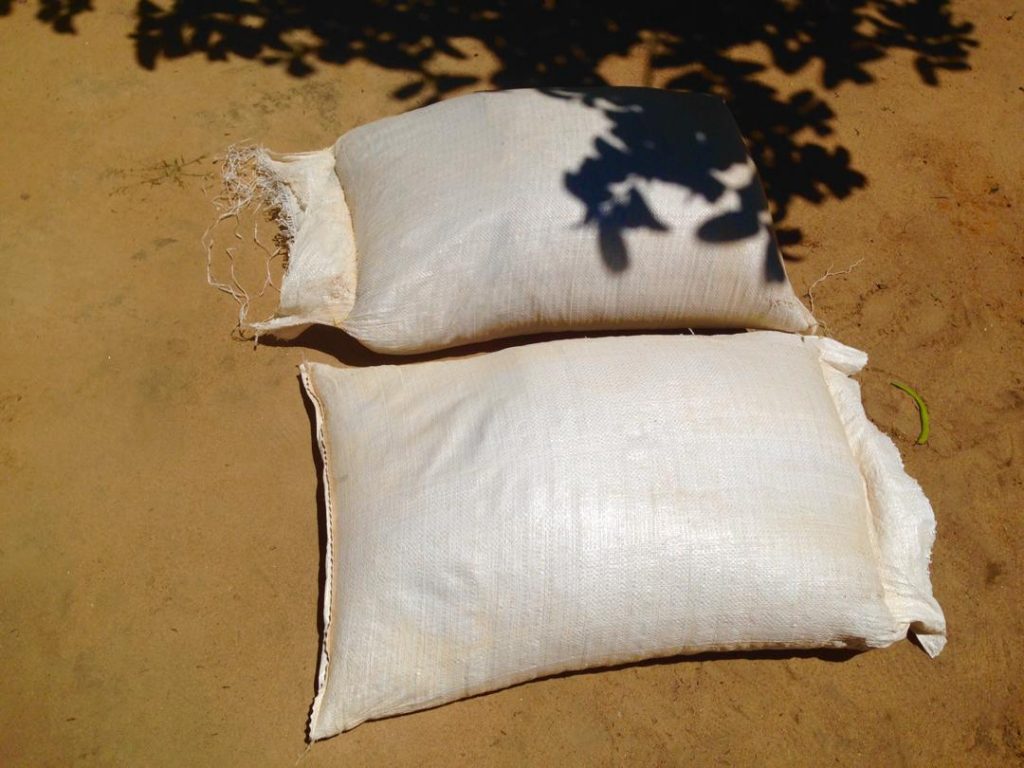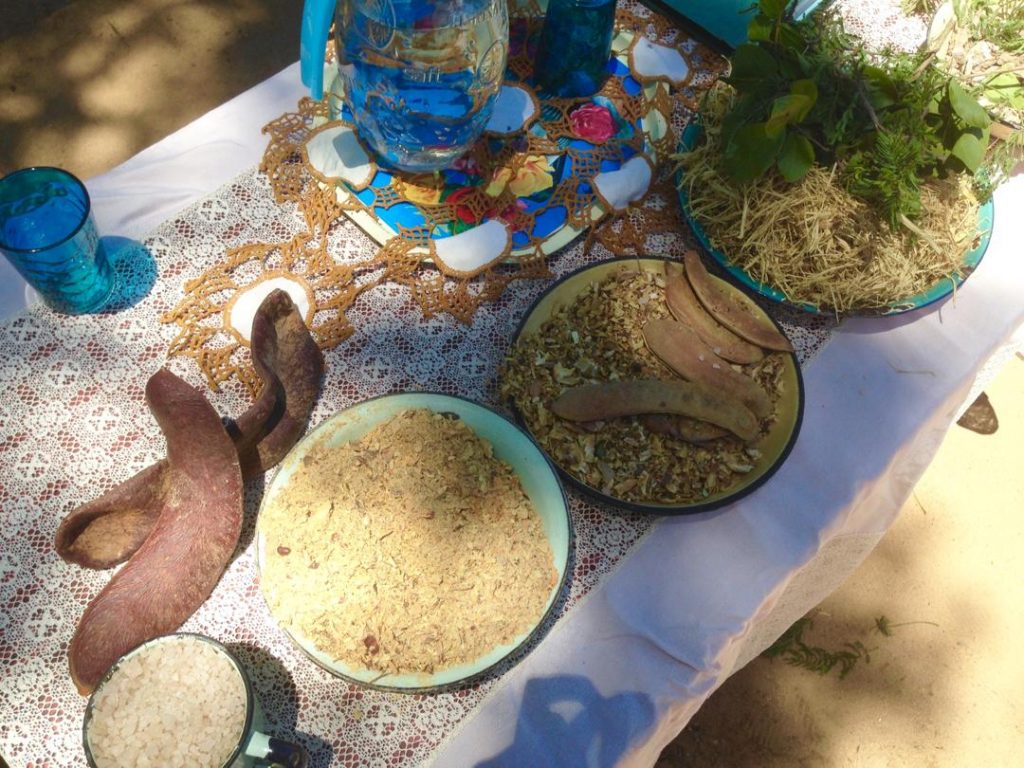A group of women in Sibangani Village, Ward 4 in Umzingwane District, Matabeleland South – named Vusanani – have broken new ground in agribusiness by producing affordable stockfeed that has saved cattle from drought.
Their stockfeed – Vusanani Bushmeal Feed, has become a survival tool for livestock following high cattle deaths in the province.
A 50kg packet of stockfeed made by the women is ZWL$100, cheaper than feed produced by corporates who sell for an average ZWL$300.

Vusanani group was formed in 2016 and due to their impressive work were identified by the Matabeleland Enhanced Livelihoods, Agriculture and Nutrition Adaptation (MELANA) project, sponsored by the Zimbabwe Resilience Building Fund (ZRBF), who helped them diversify into a formidable agribusiness.
Now, Vusanani has become the envy of Sibangani Village, as its members are self-sustainable, having also managed to run a profitable hammer mill.
Speaking during a media tour of their project, Vusanani Chairperson, Thembi Mlilo, said the group started off investing in money and lending it to other locals at five percent interest.
“Our group has eight women and three men. From our interest savings, we managed to buy female goats then MELANA assisted us purchase a male Boer goat to increase our goat stock. But due to drought, we faced challenges of buying stockfeed,” she said.
Providing stockfeed became an opportunity for Vusanani, who using own funds bought a hammer mill to produce it.
“We had converted our funds into Rands to preserve value when MELANA said if we raise 30 percent, they could contribute 70 percent for us to buy a hammer mill. We raised ZWL$10 000 while MELANA settled the rest and also brought in a consultant who taught us how to produce stockfeed,” Mlilo narrated.

Vusanani produces the stockfeed using fodder crops collected from the bush such as monkeybread that supplies 10 percent of nutritious crude protein, acacia seed cords, chicken droppings, maize and coarse salt, which acts as a substitute for molasses.
Since the fodder crops are seasonal, Vusanani already harvested and stored them in large quantities and are waiting for the next season to collect more.
Vusanani Secretary, Sinqobizitha Ncube, bragged the group had targeted to sell stockfeed to 350 farmers in a year but exceeded that number in three months.
“We bought the hammermill in October 2019 yet by end of year we had reached 351 farmers. Besides selling stockfeed, we also grind maize and our wish is to reach smallholder farmers within Umzingwane,” she said.
“So far, we have sold 13.5 tonnes of bushmeal and received ZWL$16 188 plus 17 buckets of maize. From grinding maize, we made ZWL$1 967. For expenses – fuel, airtime, building materials, we spent ZWL$8 594. In December 2019, we shared ZWL$2 676 as dividends. In total, all our expenditure amounted to ZWL$11 270.
“Our total revenue was ZWL$18 155 plus 17 buckets. We charged customers in Rands, US and bondnotes. For non-cash items plus RTGS, we collected ZWL$8 100 and to value lock the money, we bought a scotch cart for ZWL$5 000, which we rent out to other farmers.”
Sibangiso Phakathi, the vice chairperson, said besides producing stockfeed, Vusanani had diversified into tree planting.
“We have been taught to plant trees such as leucaena and velvet bean to preserve the environment for whole community’s benefit,” she said.
MELANA’s Markets Adviser, Rodney Mushongachiware, praised Vusanai for providing home grown solutions to minimise drought impact.
“We walked Vusanani through proposal development, how to compile cash flow statements, made sure they understand marketing dynamics and how to package their knowledge in a business plan. As MELANA emphasis is on saving animals in shortest period,” he said.
Mushongachiware noted from January to June, pastures in Matabeleland were abundant but from July to December, the grass dried, which necessitated supplementary feeding, as that was when cows died from starvation.
“The recommended survival feed for cattle is serving five to six kilogrammes per day, for pen fattening servings are from 10 to 13 kilogrammes per day, depending on age and sex of the animal. Vusanani will tell you from the feed they produce, cattle can be served two kilogrammes in the morning and the same portion in the evening,” said the markets adviser.
Umzingwane is one of the four districts (Nkayi, Bubi, Umguza) that have benefitted from resilience training by MELANA funded by ZRBF.
Meanwhile, Head of Projects for MELANA, Kudzai Nyengerai, said as implementers they were satisfied with progress from projects but would review and make changes as in any system.
“Our greatest desire is to have a lengthy period as impact happens measured over time. Even if a project is great, it ends within three to four years, that’s a bit short given entrenched levels of poverty and systematic challenges. We would have greater impact if we had longer life spans of five to seven years but that is a challenge common to all aid programmes,” she said.
Nyengerai said the total value of project in the four districts, according to latest figures was US$7 655 212 and were yet to receive an additional US$1 189 391.
“So far, we have spent US$4 814 133 as per last official report but figures continue to change and to date 38 196 individuals have benefited,” she noted.


May I please have the contact details of the vusanani group,I want to enquire about their bushmeal.